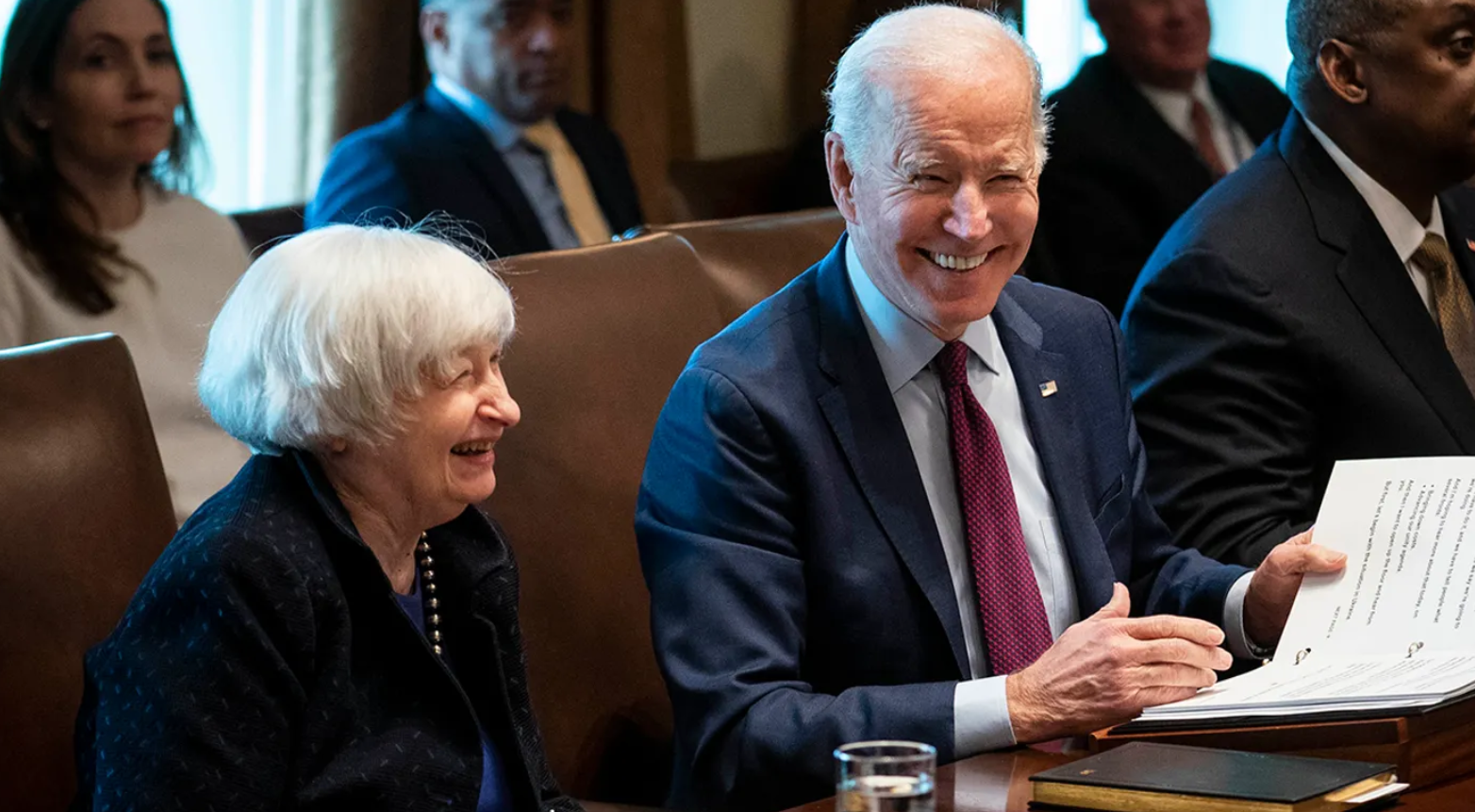Wed Jun 08, 2022
Wednesday / Junes 8
Yellen on inflation
US Treasury Secretary Janet Yellen told senators on Tuesday that she expected inflation to remain high and the Biden administration would likely increase the 4.7% inflation forecast for this year in its budget proposal.
During a Senate Finance Committee hearing, Yellen said that the United States was dealing with "unacceptable levels of inflation," but that she hoped price hikes would soon begin to subside.
U.S. Consumer Price Index inflation has been tracking above 8% in recent months, the highest readings in over 40 years and well above President Joe Biden's administration's forecast for its fiscal 2023 budget.
"I do expect inflation to remain high although I very much hope that it will be coming down now," she said.
Yellen added that both she and Federal Reserve Chair Jerome Powell both "probably could have used a better term than transitory" in describing inflation that they thought would fade quickly.
Recession fears
A widely followed Federal Reserve gauge is indicating that the U.S. economy could be headed for a second consecutive quarter of negative growth, meeting a rule-of-thumb definition for a recession.
In an update posted Tuesday, the Atlanta Fed’s GDPNow tracker is now pointing to an annualized gain of just 0.9% for the second quarter.
On net, trade is expected to subtract 0.13 percentage point from GDP in the second quarter, from a previous estimate of -0.25 percentage point, according to the Atlanta Fed.
US stocks
Stock futures fell marginally in overnight trading Tuesday after two consecutive days of gains on Wall Street.
The Dow Jones Industrial Average gained 264.36 points, or 0.8%, to close at 33,180.14. The S&P 500 rose 0.95% to 4,160.68, and the Nasdaq Composite added 0.94% to 12,175.23. The indexes opened solidly lower but trimmed those losses and turned positive as the day progressed.
Energy was one of top performing sectors on Tuesday as oil futures hovered near $120 per barrel.
World Bank warning
The World Bank on Tuesday slashed its global growth forecast and warned that many countries could fall into recession as the economy slips into a period of stagflation reminiscent of the 1970s.
Global economic expansion is expected to drop to 2.9% this year from 5.7% in 2021 — 1.2 percentage points lower than the 4.1% predicted in January, the Washington-based bank said in its latest Global Economic Prospects report.
Growth is expected to then hover around that level through 2023 to 2024 while inflation remains above target in most economies, the report said, pointing to stagflation risks.
